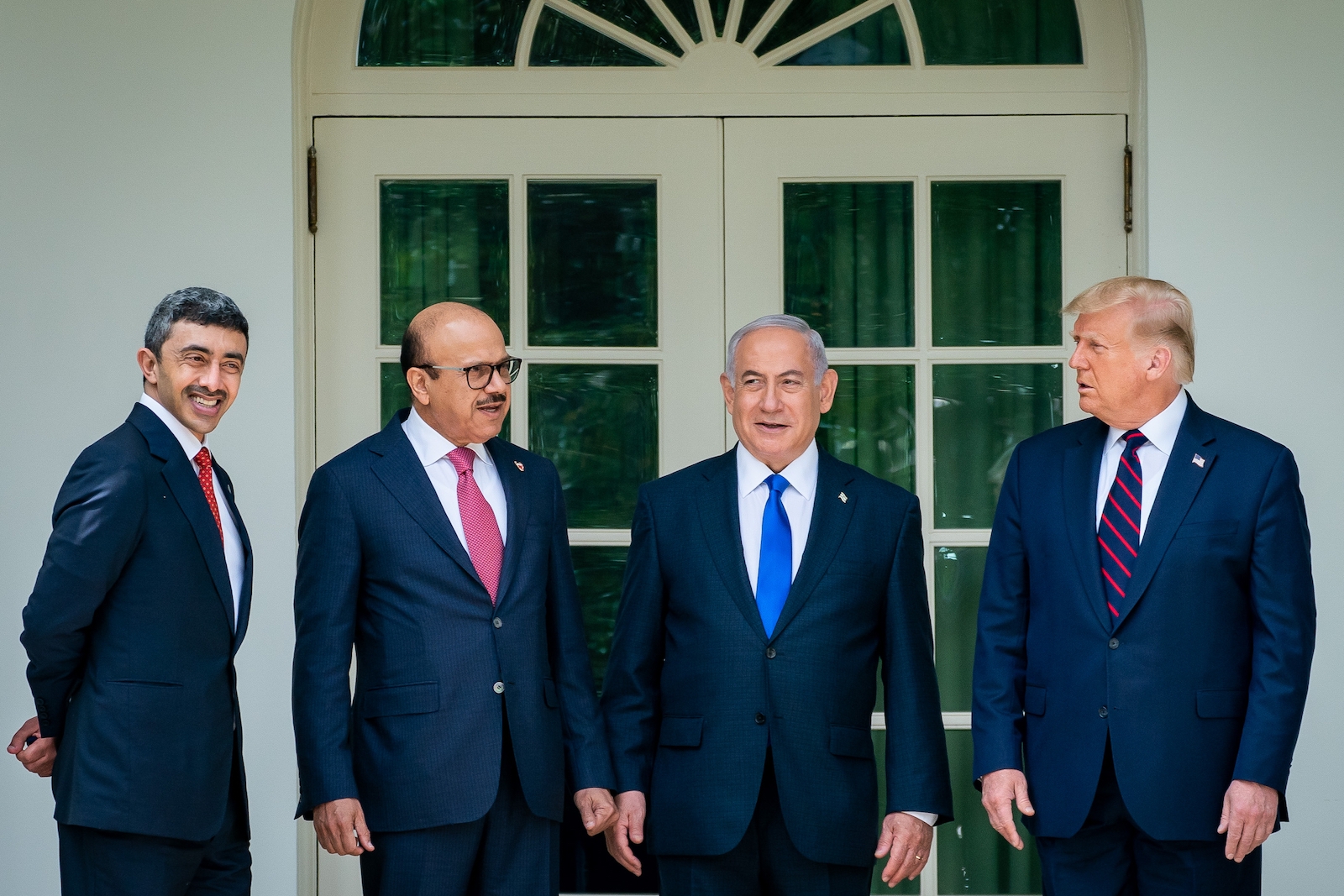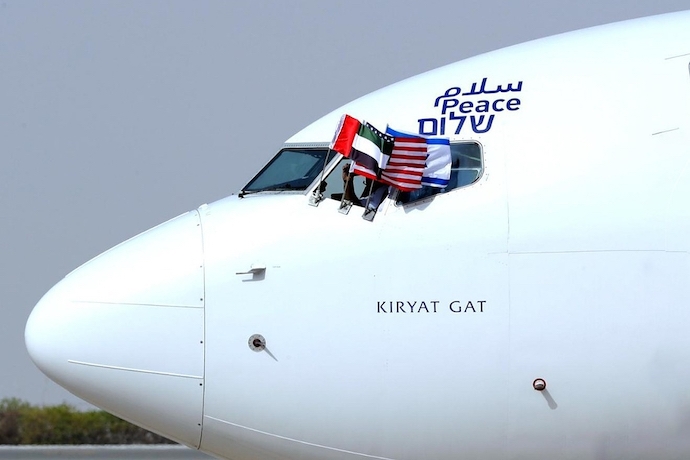
More Latent than Actual: The Abraham Accords at One
It has now been a year since the so-called Abraham Accords which normalized relations between Israel and several Arab countries, including the United Arab Emirates, Bahrain, Morocco, and Sudan, were announced. But while the move was one of the most significant developments in the Middle East during 2020, its impact remains more latent than actual, both in the economic sphere as well as on regional security matters like Iran and Palestine.
Part of the reason for the limited effect has been the short period of time that has passed since Israel, the UAE and Bahrain signed the deal on the White House lawn on September 15 of last year. While there has been a movement of people, the dispatch of ambassadors and the opening of embassies, more substantive results have yet to fully transpire. Furthermore, of the countries involved, only two – Israel and the UAE – have made the greatest advance.
Yet even that must be qualified. At a Wilson Center event to celebrate the agreement this week, Yousef Al Otaiba, the UAE’s ambassador to the U.S., said that relations between the two countries were only “skimming the surface.” For example, although clandestine trade between Israel and the UAE existed before, the volume of trade rose from $190 million in 2020 to $523 million in the first six months of 2021. But it could potentially grow further: this week reports in Bloomberg and Reuters have suggested that trade between the two could reach $1 trillion within 10 years.
If Israel and the UAE are to reach that level of economic exchange, it will be helped by the complementary nature of the two countries’ economies. For example, the UAE can not only offer aluminum and ceramics for Israel’s economy but also assistance in the energy and construction sectors. This month, Israel’s Delek Drilling firm sold its 22 percent stake in the Tamar natural gas field to Abu Dhabi’s Mubadala Petroleum company for $1.1 billion. Previously, there has also been Emirati interest in the development of the “Red-Med” pipeline to transport gas by land across Israel and avoid the chokepoint of the Suez Canal – although a number of environmental protests and challenges have been raised regarding its route.
For the UAE, Israel offers appeal as a source of advanced technology. The UAE is keen to upgrade its hi-tech sector and attract Israeli investment and activity, especially through the various free zones it operates. There is also interest in Israeli cybersecurity, with representatives from Israel’s business world and security services attending the Cybertech Global event in Dubai last April.

In contrast to the UAE, progress with Bahrain, Morocco, and Sudan has been less comprehensive. Part of the reason is that there is less to connect these countries directly to Israel. Of the three, Bahrain has perhaps the most involvement, but is behind the UAE in terms of developing economic opportunities; it is still working on the wording of a trade agreement. As for Morocco and Sudan, their decision to recognize Israel stemmed more from American persuasion. Former President Donald Trump offered to help Sudan reduce its public debts and held the prospect of recognizing Moroccan sovereignty over the contested Western Sahara. Although current U.S. President Joe Biden did provide a loan to Sudan which partly helped cover its debts, it has kept the question of Western Sahara under review.
Beyond the preponderance of personal and economic ties between Israel and the UAE, the Abraham Accords have not led to any substantial change in other fields, especially in relation to security matters like Iran or Palestine.
Israel, the UAE, and the U.S. have a mutual suspicion and aversion towards Iran, its proxies, and activities in the region. Despite this, the deal between the two has not led to a more direct confrontation with Tehran. One reason for this was Biden defeating Trump in November of last year.
Whereas Trump had sought to exert maximum pressure on Iran by withdrawing from the Iran nuclear deal and reimposing sanctions, the Biden administration has held indirect talks to restart it. Biden’s talks have coincided with others that Iran is holding, including its main regional rival, Saudi Arabia. In short, the situation in the Gulf is not as heated as it was during the Trump years.
Another reason is political change within Israel. In March, the country held elections, which led to Prime Minister Benjamin Netanyahu losing power after 12 years. He was replaced by Naftali Bennett in June. Although Bennett is skeptical of the American talks, he is keen to show that he is less obstructive than Netanyahu was and that he can be a more supportive partner to Washington.
On Palestine, the Accords marked a break in the Arab consensus which held that Israel would not be recognized before a peace agreement was signed. In response to this, the Emiratis justified their decision to seek formal ties with Israel by claiming that their prospect encouraged Israel to back down from annexing the West Bank – although that position was arguably shelved given the precarious internal state of the last Netanyahu government. Since then, Al Otaiba suggested at the Wilson Center event that looking ahead, greater economic exchange between his country and Israel will have a knock-on effect for Palestinians and the Palestinian economy.
Regardless of such claims, it is unlikely that there will be much movement in relation to resolving the conflict between Israel and the Palestinians anyway. As with Iran, other factors are relevant here. Like Netanyahu before him, Bennett presides over a fragile coalition, which may not survive its full four-year term. Meanwhile, the Palestinian polity remains fractured, not just between the Fatah and Hamas parties which control the West Bank and Gaza respectively, but internally as well. Indeed, in April, Palestinian President Mahmoud Abbas canceled elections when it became clear that his own faction within Fatah looked likely to be defeated. Since then, the Palestinian leadership has become increasingly disconnected from society during a summer of protests alongside a heavy-handed response.

